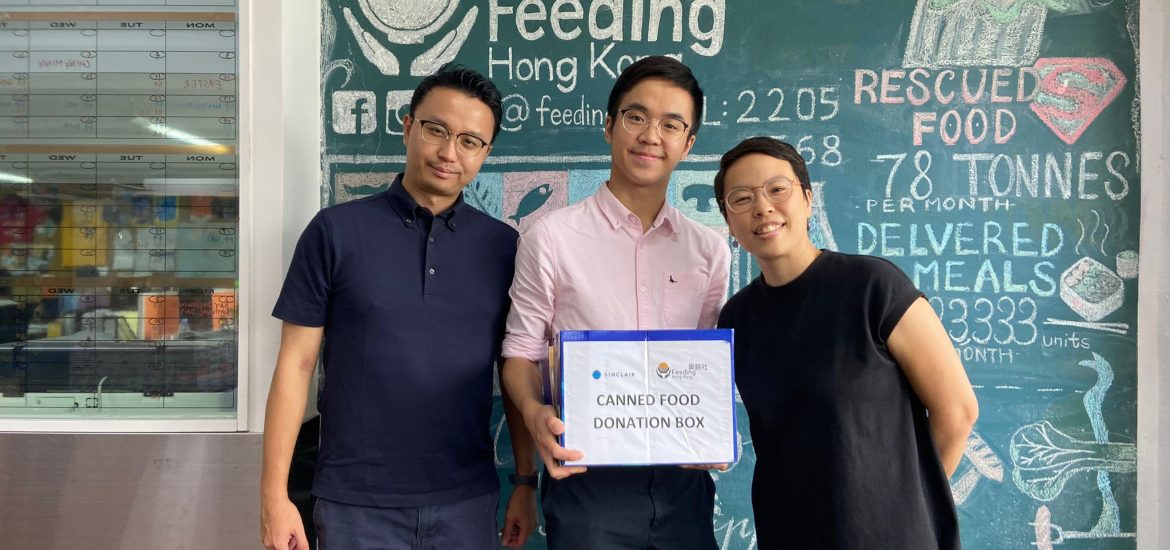The annual Dragon Boat Festival in Hong Kong is rightly celebrated for heart-pounding boat races and family get-togethers. This year, the charity Feeding Hong Kong acquired 10,000 sticky rice dumplings (zongzi), the iconic food for this festival, that were going to be thrown away. That haul is quite a bit of waste.
Fortunately, the charity not only received these perfectly edible dumplings from a range of donors, but was also able to give them a new lease on usefulness by handing them to shelters and homes for the poor.
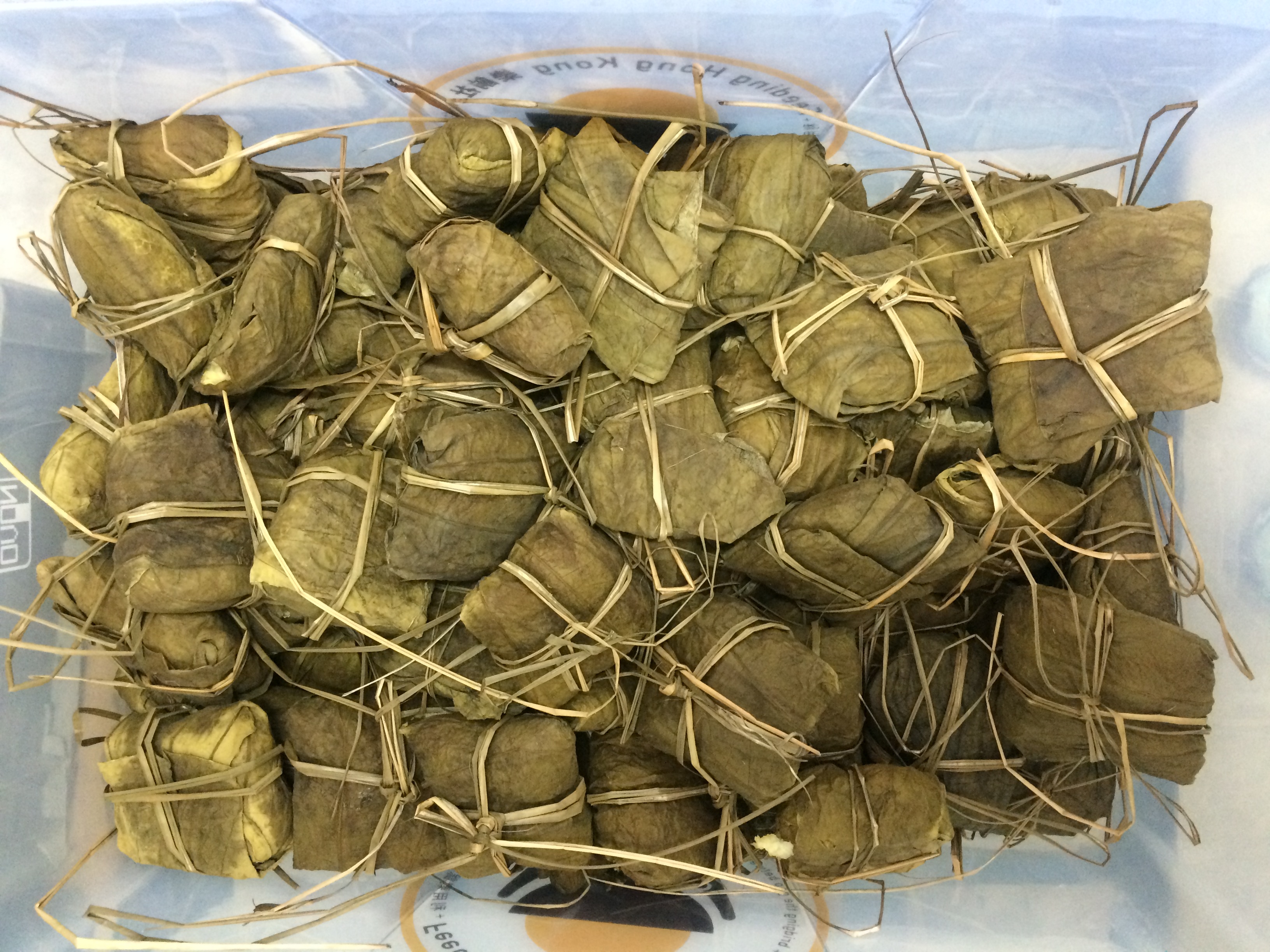
As Fanny Lee, community engagement director of Feeding Hong Kong, told me on my visit to the non-profit’s headquarters: “Hongkongers often do not know that the Best Before date is very different to the expiry date. Households and businesses alike are therefore extremely wasteful when it comes to the food they throw out.” The Environmental Protection Department recorded 3,255 tons of food waste being disposed of at landfills every day in 2020. Of these daily 3,255 tons, around 778 tons were from commercial and industrial sources like restaurants, hotels, food production factories, and so on. “3,000 tons are enough to fill 240 buses, or provide the entire population of city 8 million meals every day.”
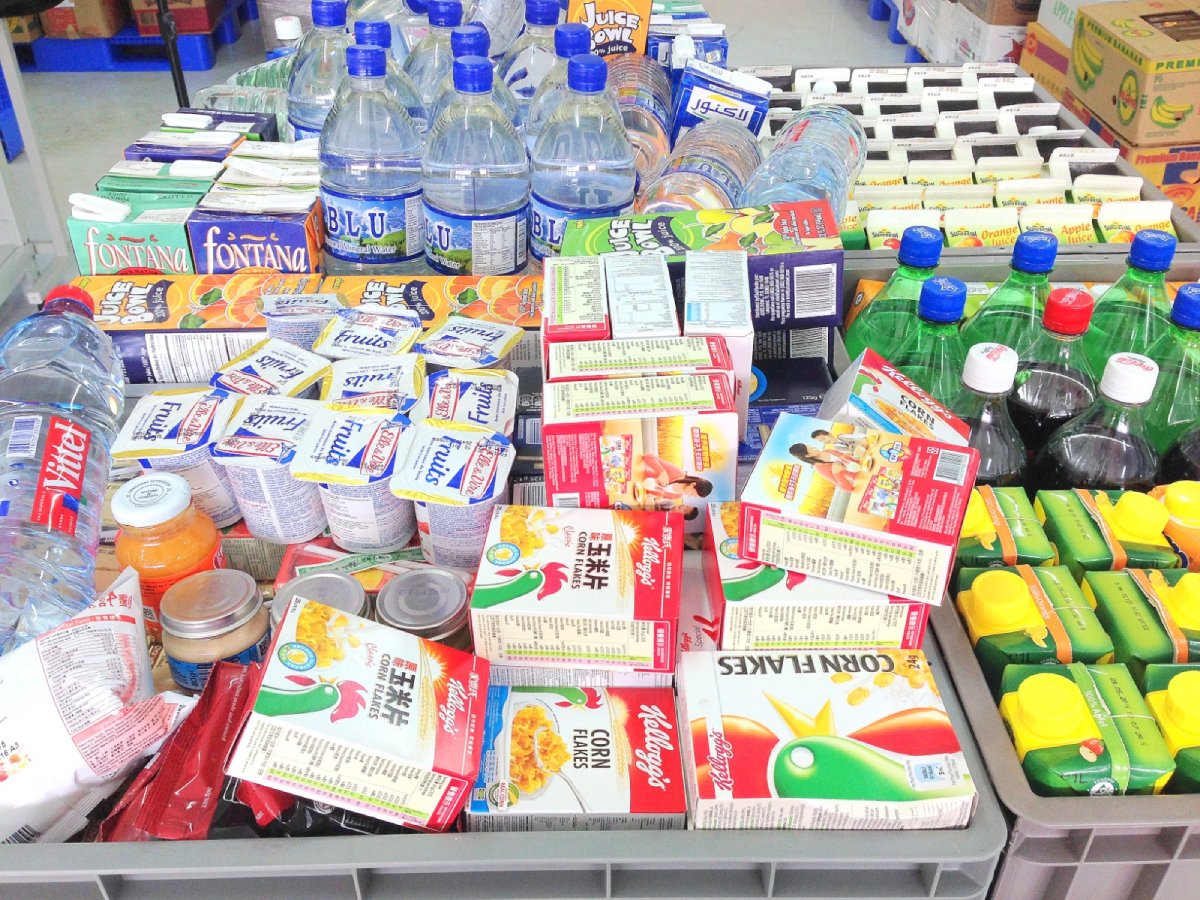
Feeding Hong Kong was founded by Gabrielle Kirsten 12 years ago, when she passed by a bakery that was about to throw away a shelf of freshly baked bread. This mundane observation led her to get together with friends to reconceive of “food waste” as simply “misdirected resources.” The organization’s mission hits three critical matters: Hong Kong’s wastefulness as a city, the poverty situation, and the climate crisis. Fanny told me:
“Reducing food waste and helping the poor are absolutely interconnected issues. The disadvantaged need easy access to a range of packed foods, and we are always mindful of having a balanced range of products that we acquire from our partners. And this access is right before us, in the form of thousands of tons of perfectly edible consumables that we screen rigorously. We ensure that the food, even if they have gone by their Best Before date, align with our standards for hygiene and freshness. Finally, reducing waste will help Hong Kong tackle its climate crisis, which is fuelled not so much by overconsumption but by a misallocation of resources.”
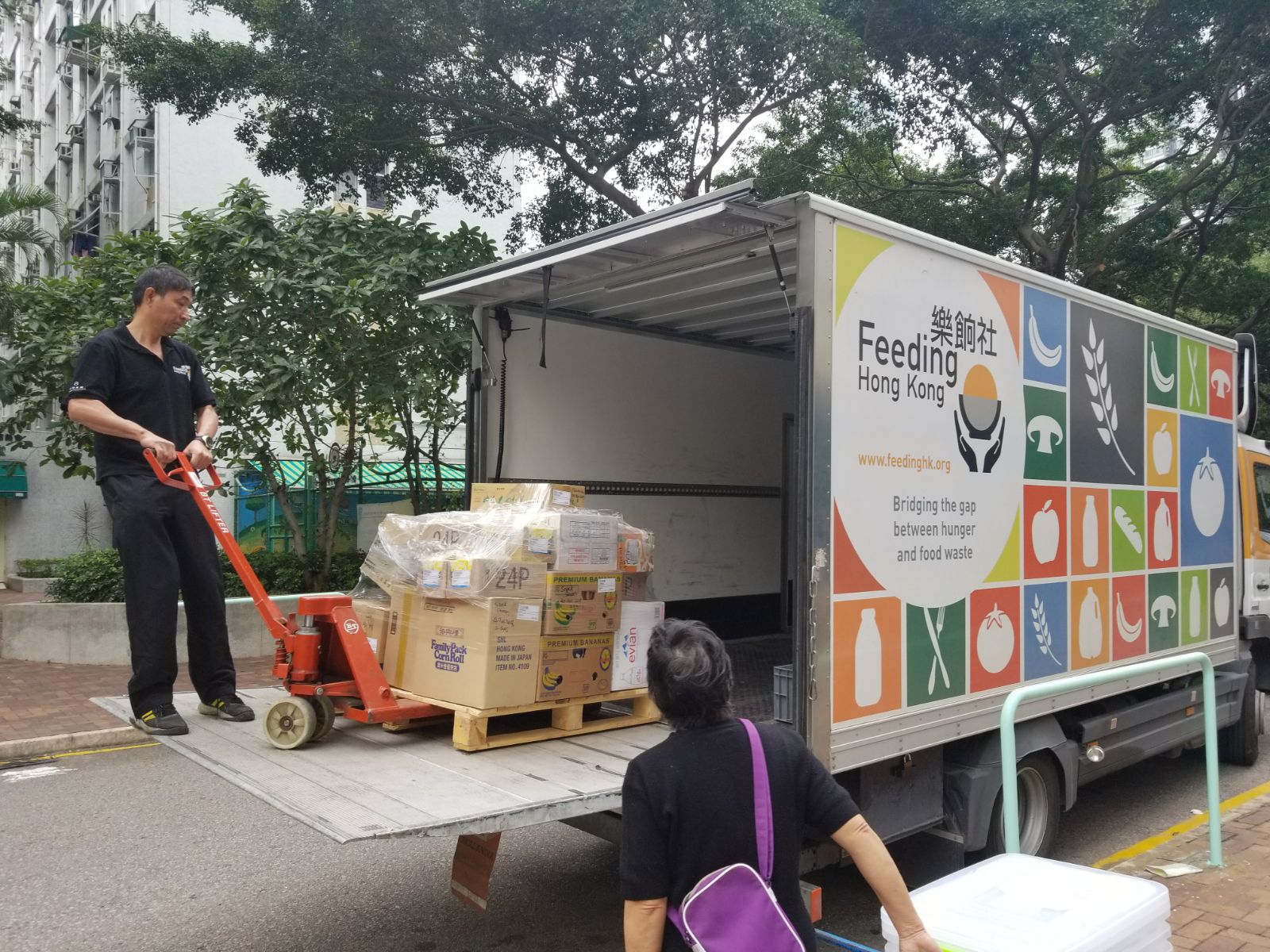
Fanny took me to the storage facilities, which the organization rented on the 7th, 5th, and 2nd floors. On the 7th floor, I was able to see for myself their fridge and freezer, along with rows upon rows of spacious shelves that have their own categories and labels. Over the past decade, the charity has amassed a decent base of resources to deploy for the cause: a fleet of four trucks doing free pick-up and delivery, a team of professional and dedicated staff, and perhaps just as importantly, hundreds of volunteers.
Feeding Hong Kong works with close to 150 charities helping the elderly, low-income families, and refugees or ethnic minorities in difficult situations. Hong Kong’s status as a global finance hub, as with other cities around the world, does not mean much in the face of the reality of poverty: 1 out of 5 Hongkongers live below the poverty line, with many of them being elderly people and children. “Food banks have different strategies of distributing food. A food bank might commonly have a central kitchen, which cooks food and directly gives it to people. We are a business-to-business service, so we will receive packaged food from all our partners, before delivering it to other charities. But some of these charities will be the traditional food banks with kitchens.”
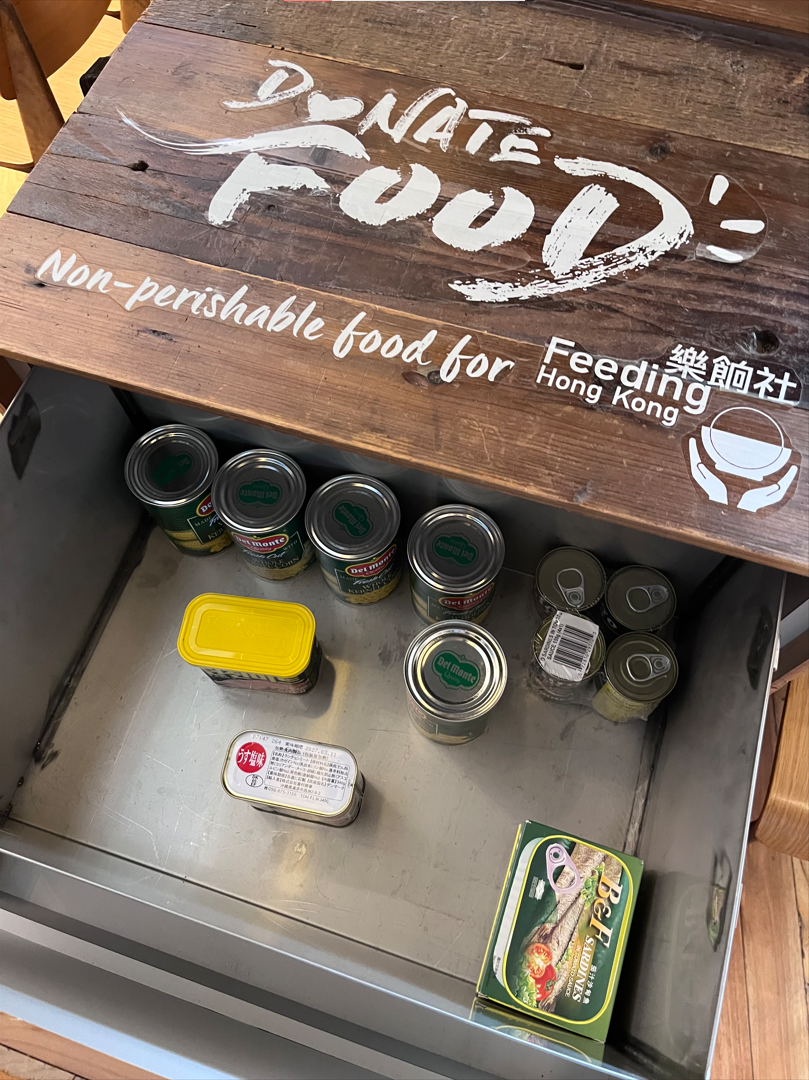
Feeding Hong Kong has been working with influencers during festivals in Hong Kong, and the results have been encouraging. Fanny believes that more needs to be done, though. “We have a relatively elementary strategy of outreach when it comes to education and changing the culture of Hong Kong long-term. We give talks at school but it’s not easy to keep kids’ attention. But it’s actually more useful to bring them to our headquarters, so they can see for themselves how much waste we take in.”
The team still goes around bakeries on Tuesday and Thursday, true to Ms. Kirsten’s founding motivation. One cannot help thinking that in theory, it would be ideal for there to not be a need for charities like Feeding Hong Kong – even the staff would probably agree. But given the reality of the ingrained culture of food waste and poverty for a sizable minority in Hong Kong, the work of the team will probably remain never-ending. Just how a bodhisattva remains as long as there remains suffering beings.


